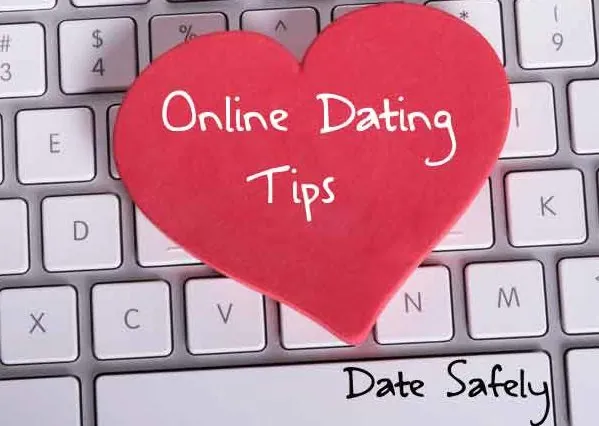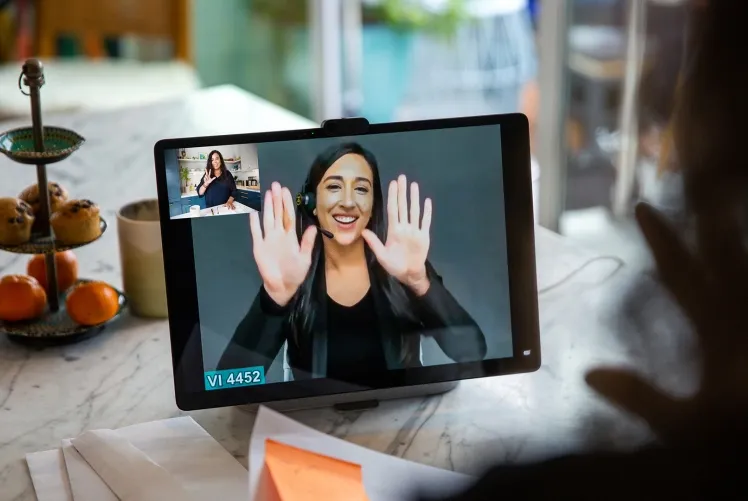Introduction
Dating in Nigeria can be exciting but also comes with safety risks. Knowing how to stay safe when dating in Nigeria is essential for protecting your physical, emotional, and financial well-being. This article offers comprehensive advice, real-life case studies, and practical tips in simple English to help you navigate dating safely.
Key Features of How to Stay Safe When Dating in Nigeria
- Awareness of common dating risks and scams
- Practical online and offline safety strategies
- Recognizing warning signs and red flags
- Importance of communication and boundaries
- Utilizing technology for safety
- Involving trusted friends and family
- Legal rights and resources for protection
Understanding Dating Safety Risks in Nigeria
- Physical safety concerns during in-person meetings
- Online scams and fake profiles targeting singles
- Emotional manipulation and abuse
- Financial fraud and exploitation
- Social stigma and privacy breaches
Online Dating Safety Tips in Nigeria

- Use reputable dating apps with verification features.
- Protect personal information; avoid sharing addresses or financial details early.
- Verify identities through video calls before meeting.
- Report suspicious profiles immediately.
- Meet first in public, well-populated places.
- Inform a trusted friend or family member about your plans.
- Use secure internet connections and strong passwords.
Offline Dating Safety Tips in Nigeria
- Arrange first meetings in safe, public locations like cafes or malls.
- Avoid accepting rides or drinks from strangers.
- Trust your instincts; leave if you feel uncomfortable.
- Keep your phone charged and accessible.
- Set boundaries and communicate clearly.
- Avoid sharing too much personal information too soon.
- Have an emergency contact on standby.
Recognizing Red Flags and Avoiding Scams
- Requests for money or financial help early in the relationship.
- Inconsistent or evasive communication.
- Pressure to meet privately or quickly.
- Refusal to meet in public or video chat.
- Excessive flattery or love bombing.
- Disrespecting boundaries or rushing intimacy.
Table: Summary of Safety Tips for Dating in Nigeria
| Safety Aspect | Tips | Benefits |
|---|---|---|
| Online Safety | Use verified apps, protect info, video calls | Avoid scams and fake profiles |
| Meeting in Person | Public places, inform friends, trust instincts | Ensures physical safety |
| Communication | Set boundaries, watch for red flags | Prevents emotional manipulation |
| Financial Safety | Never send money early, verify intentions | Protects against fraud |
| Privacy | Control social media sharing | Maintains confidentiality |
| Emergency Preparedness | Keep phone charged, have contacts ready | Quick help if needed |
Case Studies: Real-Life Safety Experiences in Nigerian Dating
Case Study 1: Avoiding a Financial Scam
Ngozi detected inconsistencies in a suitor’s story and refused to send money, preventing financial loss.

Case Study 2: Trusting Instincts in Lagos
Chinedu left a date early after feeling uneasy, later discovering the person had a criminal record.
Case Study 3: Using Video Calls for Verification
Amaka insisted on video chatting before meeting, confirming her partner’s identity.

Case Study 4: Public Meeting Saves a Woman
A woman in Abuja avoided danger by meeting in a busy café as planned, despite pressure to go elsewhere.
Case Study 5: Reporting a Suspicious Profile
Tolu reported a fake profile on a dating app, helping protect others from scams.
Case Study 6: Setting Boundaries Early
Funmi communicated her limits clearly, preventing unwanted advances.
Case Study 7: Emergency Contact Use
Ifeanyi’s friend alerted authorities after he sent a distress message during a risky date.
Case Study 8: Privacy Protection on Social Media
Ngozi adjusted her privacy settings to prevent a date from accessing personal information.
Tips for Building Trust and Protecting Yourself
- Take time to get to know someone before deepening the relationship.
- Maintain independence and personal boundaries.
- Share your dating plans with trusted people.
- Educate yourself about common scams and tactics.
- Use technology wisely to verify and communicate.
- Stay alert to changes in behavior or communication patterns.
- Seek help if you feel threatened or unsafe.
Preparing for a Safe First Date in Nigeria
The first date is crucial and can pose safety risks if not properly planned. Here are essential tips for how to stay safe when dating in Nigeria during initial meetings:
- Choose Public, Well-Lit Locations: Opt for cafes, restaurants, malls, or parks where there are many people and security presence.
- Inform a Trusted Person: Always tell a friend or family member where you’re going, who you’re meeting, and your expected return time.
- Arrange Your Own Transportation: Avoid accepting rides from someone you just met; use ride-hailing apps or public transport to maintain control.
- Limit Alcohol Consumption: Stay alert by moderating alcohol intake or avoiding it altogether.
- Keep Personal Items Secure: Carry only essentials and keep your phone and wallet accessible.
- Have an Exit Plan: Know how to leave quickly if you feel uncomfortable or unsafe.
Communication Before the Date
- Verify the person’s identity via phone or video call before meeting.
- Set clear expectations about the date’s time, place, and activities.
- Share your plans with a trusted contact who can check in on you.
Understanding Legal Protections for Dating Safety in Nigeria
While dating is a personal matter, Nigerian law provides protections against abuse, harassment, fraud, and violence that can occur in dating contexts. Knowing your legal rights is an important part of staying safe when dating in Nigeria.
- Criminal Code Act and Penal Code: These laws criminalize assault, harassment, and fraud, providing avenues for legal recourse.
- Cybercrime Act: Protects individuals from online scams, identity theft, and cyber harassment, relevant for online dating safety.
- Domestic Violence Laws: Some states have laws addressing domestic abuse, which can extend to dating relationships.
- Reporting Mechanisms: Victims can report crimes to the police, cybercrime units, or specialized women and youth protection agencies.
Support Organizations and Hotlines
- National Agency for the Prohibition of Trafficking in Persons (NAPTIP): Offers support for victims of abuse and exploitation.
- Women’s Rights Organizations: Groups like Project Alert and Women’s Aid Collective provide counseling and legal assistance.
- Cybercrime Reporting Centers: Help victims of online fraud and harassment.
- Counseling Services: NGOs and private counselors offer emotional support for relationship challenges.
- Emergency Hotlines: Local police emergency numbers and helplines for abuse victims.
How to Access Legal and Support Services
- Document incidents carefully (messages, photos, recordings).
- Approach trusted friends or family for assistance.
- Contact relevant authorities or organizations promptly.
- Seek legal advice if needed.
- Use online resources and helplines for confidential support.
Pros and Cons of Dating Safety Practices in Nigeria
| Pros | Cons |
|---|---|
| Enhances physical and emotional safety | May cause distrust or slow relationship progress |
| Prevents financial and emotional scams | Requires vigilance and effort |
| Builds confidence and empowerment | Some safety measures may feel restrictive |
| Encourages responsible dating behavior | Over-cautiousness may limit social interactions |
| Provides support networks | Privacy concerns with sharing information |
Understanding the Psychological Effects of Unsafe Dating Experiences
Unsafe dating experiences in Nigeria can have profound psychological impacts, affecting mental health and future relationships. Recognizing these effects is essential for recovery and prevention.
- Emotional Trauma: Experiences of abuse, betrayal, or scams can lead to feelings of fear, sadness, and mistrust.
- Anxiety and Depression: Victims may develop anxiety disorders or depression related to their dating experiences.
- Low Self-Esteem: Negative dating encounters can damage self-confidence and self-worth.
- Relationship Anxiety: Past trauma may cause fear or hesitation in forming new relationships.
- Social Withdrawal: Victims might isolate themselves to avoid further harm or judgment.

Steps to Heal from Unsafe Dating Experiences
- Acknowledge the Experience: Accepting what happened is the first step toward healing.
- Seek Professional Help: Counseling or therapy can provide tools to cope and recover.
- Build Support Networks: Friends, family, or support groups offer emotional comfort and understanding.
- Practice Self-Care: Engage in activities that promote well-being and self-love.
- Set Healthy Boundaries: Learn to recognize and enforce personal limits in future relationships.
- Educate Yourself: Understanding healthy relationship dynamics empowers better choices.
Tips for Psychological Well-being After Unsafe Dating
- Don’t blame yourself for what happened.
- Take time to heal before entering new relationships.
- Surround yourself with positive influences.
- Practice patience and kindness toward yourself.
- Stay informed about healthy dating practices.
- Reach out for help when needed without shame.
Frequently Asked Questions (FAQs)

1. How can I verify if someone is genuine on dating apps?
Use video calls, check social media profiles, and look for consistent information.
2. What should I do if I feel unsafe on a date?
Leave immediately, contact a trusted person, and seek help if necessary.
3. Are there specific dating apps safer for Nigerians?
Apps with profile verification and reporting features are generally safer.
4. How much personal information should I share early on?
Limit sharing sensitive details like home address, financial info, or workplace.
5. What are common red flags in Nigerian dating?
Requests for money, evasiveness, pressure to meet privately, and inconsistent stories.
6. How can I protect my privacy on social media while dating?
Adjust privacy settings and avoid posting relationship details publicly.
7. Should I inform friends or family about my dates?
Yes, always let someone you trust know your plans.
8. What legal protections exist for dating-related crimes in Nigeria?
Laws against fraud, harassment, and assault apply; report incidents to authorities.
9. How can I build trust safely in a new relationship?
Communicate openly, verify identity, and take time to know your partner.
10. What resources are available if I experience dating abuse?
Contact local support groups, legal aid, and counseling services.
Conclusion
Knowing how to stay safe when dating in Nigeria is essential for protecting yourself physically, emotionally, and financially. By applying practical safety tips, recognizing red flags, and learning from real experiences, you can enjoy meaningful relationships while minimizing risks. Always prioritize your well-being and seek support when needed.